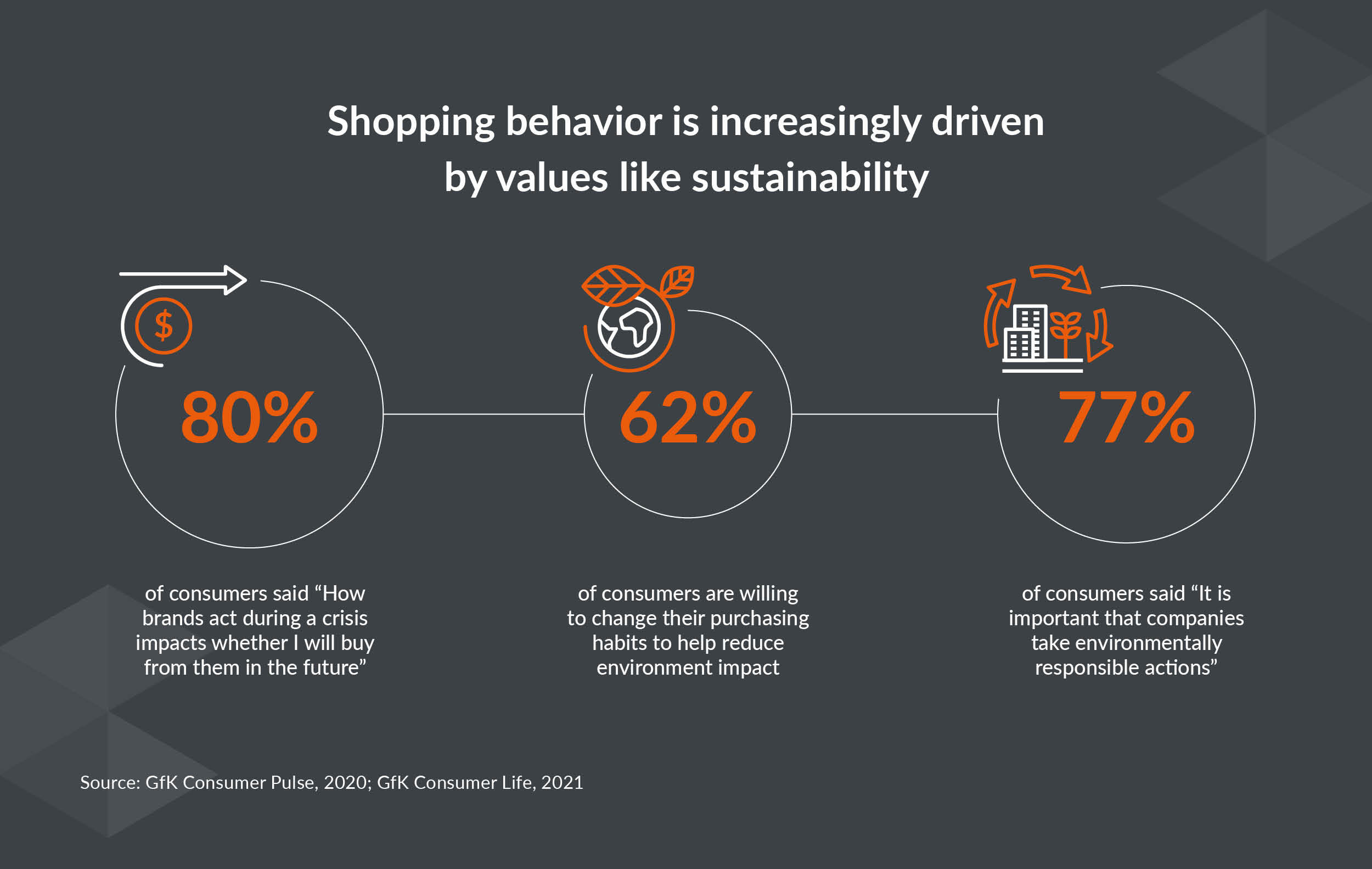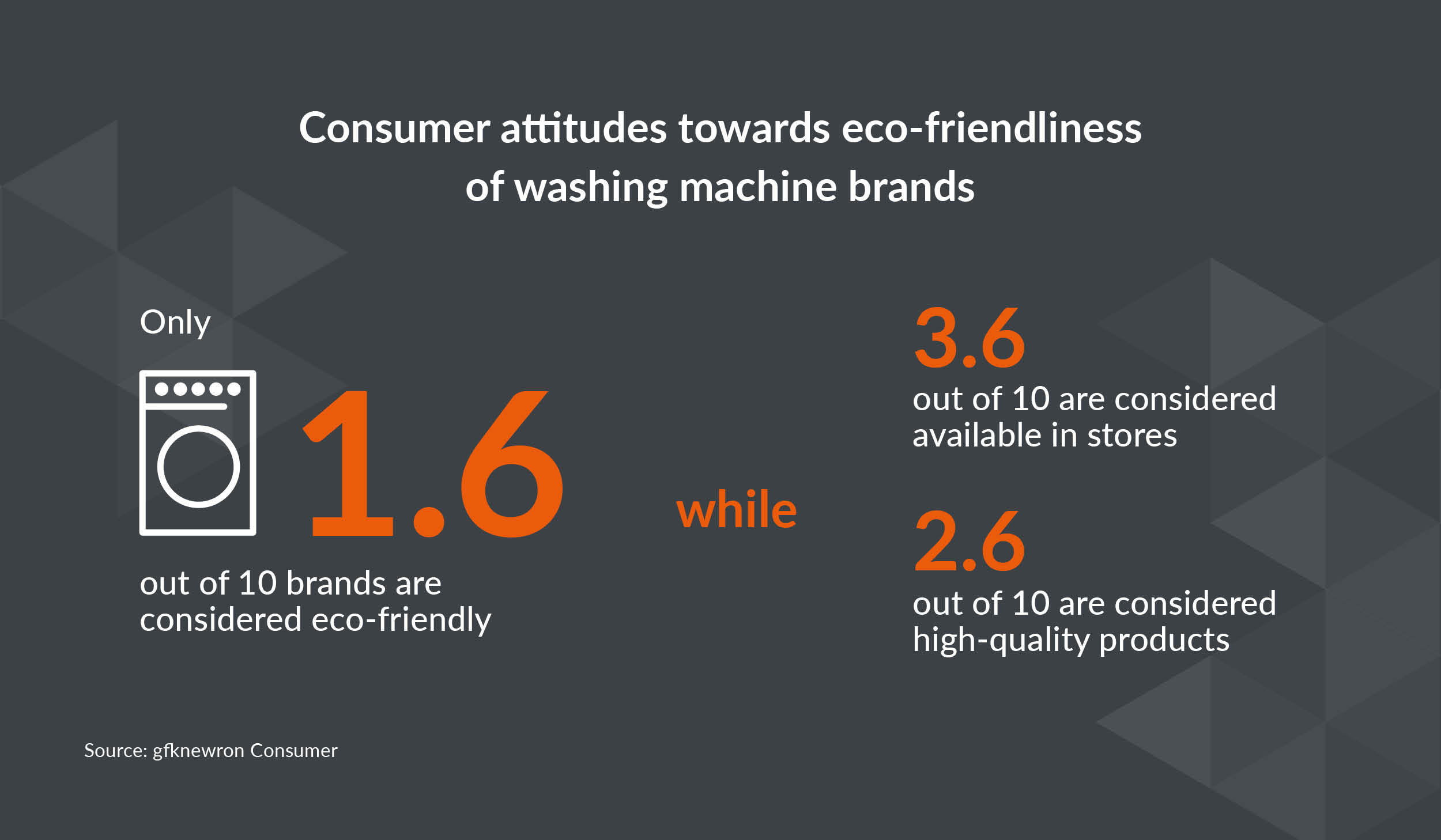Sustainability has become a necessity rather than a ‘nice to have’ for the consumer technology and durables sector. That’s why now is the ideal time for brands and retailers to leap – before they’re pushed.
It wasn’t so long ago that sustainability was a relatively niche selling point. Only a handful of brands were championing their eco-credentials, and conscious consumerism was in its infancy. Now, of course, that’s all changed. There’s no longer any doubt that the social and environmental impact of a product plays a key role when it comes to consumer purchase decisions. This in turn changes what people will buy, where they’ll buy and how much they’ll spend. The consumer technology and durables industry is no exception.
More than three quarters (77%) of global consumers now believe that it’s important that companies take environmentally responsible actions, while 62% say they’ll actively choose one brand over another because of its support for a particular cause. You can read more about consumer attitudes toward sustainability here.

Compounding this is the growing regulatory pressure on both brands and retailers to take action on sustainability, pressure that only looks set to accelerate in the coming years. In fact, in markets such as the UK, rigorous new environmental reporting standards that require businesses to disclose their impact to investors are soon set to come into force.
In other words, there has never been a more urgent time for companies to act.
Against this backdrop of demand from both their customers and governments, consumer technology and durables have an unprecedented opportunity to take a stand. In other sectors, such as fashion or food and drink, there are a raft of brands already proactively marketing products off the back of their green record. Many of which are able to charge a premium as a result of this alignment with shopper values too (for more on tapping into the premiumization trend, read our article here).
But in the consumer technology and durables sector, this position in the market is still up for grabs. Our consumer data available on gfknewron shows that currently, only 1.6 out of 10 washing machine brands are considered eco-friendly, for instance.

The bad news is that this means business decision makers in this sector are missing out on a golden opportunity. The good news is that it’s all left to play for.
In fact, as pressure ramps up, now is the ideal time for a forward-thinking brand or retailer to take action. To establish themselves as a sector leader on sustainability. And to grab the first mover advantages that go with such a step.
How can brands cement a sustainable reputation?
1. Integrate sustainability into a product’s DNA
A single eco-friendly product or campaign won’t cut it. To achieve true credibility, business decision makers in consumer technology and durables need to weave sustainability through every aspect of their business. That includes everything from sourcing, to marketing, to the nuts and bolts of their product portfolio. A commitment to sustainability should be factored into every decision or it risks superficiality. That can’t be achieved overnight, of course. It’s a complex task that will require a series of incremental changes by the C-suite over a period of time. But that doesn’t negate the urgency of making a start now.
2. Prioritize credibility
It might be tempting in those initial stages when progress can be slow, but be wary of using vague marketing terms or any unsubstantiated claims. Consumers are increasingly savvy on what constitutes a genuinely sustainable product and descriptions that constitute ‘greenwashing’ can do considerable harm to a brand’s reputation. Even worse, it can see a company fall foul of emerging regulations that target claims not backed up by evidence. It’s far better to be transparent and open with consumers on the achievements so far – and where there is still work left to do.
3. Consider the whole value chain
Just as a single eco-friendly product won’t achieve sustainability for the brand as a whole, failing to consider all the different parts of the value chain will stymie how much difference a company can really make. Companies need to consider the total environmental impact of their value chain - from sourcing and production to distribution, consumer use and disposal. Rather than act in isolation, consider how to leverage partnerships elsewhere in the supply chain. That could mean a retailer working alongside its suppliers to reduce carbon emissions linked to shipping. Or brands using their dialogue with end consumers to educate them on how to dispose of electronics in a more sustainable way. The options here are pretty endless.
4. Craft a ‘Sustainability+’ message
There are plenty of opportunities in consumer technology and durables to align the sustainability of a product with its inherent functionality too. In doing so it’s possible to create a more compelling ‘Sustainability+’ message, with greater credibility and resonance. In both major and small domestic appliances, for example, the quality and therefore longevity of a device has clear links to eco-friendliness, requiring less frequent replacement or repair. Integrate this element into any broader messaging around the eco-friendliness of a product.
Speaking out on sustainability
Now is the time for brands and retailers in consumer technology and durables to ramp up their efforts on sustainability. As consumer interest grows and regulatory pressure intensifies, companies not only need to share their progress on environmental and social impact in their yearly sustainability reports, but make sustainability a leading dimension in their strategic decision making. The benefit? Those C-suite leaders that leap before they’re pushed will gain the first mover advantage.
It has never been more important to closely monitor what matters to consumers, including their concerns about sustainability, using tools such as GfK’s own gfknewron. To discuss your specific strategic challenges on sustainability and to drive your sustainability agenda, reach out to gfkconsult experts.
Learn more about strategies and solutions that can help you navigate through the uncertainty of an already volatile market.
Download our State of Consumer Technology and Durables Report


